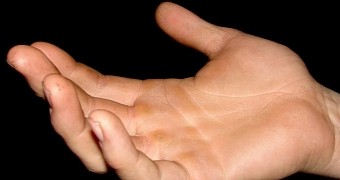Having documented the behavior of 155 volunteers over the course of 20 consecutive days, specialists at McGill University in Canada found that, as surprising as this may sound, it is scientifically accurate to judge a man by his fingers.
Simply put, the scientists argue that, if a man's index fingers are considerably shorter than their ring fingers, chances are that he is quite polite and nice towards women. As a result, he is likely to father more children.
By comparison, men whose index fingers are about the same length of their ring fingers are not all that pleasant to be around. This is because they don't often listen attentively, smile, compromise or make compliments.
The McGill University researchers argue that the link between these anatomical and behavioral differences can be explained by taking into account what happens to a child while still inside the womb.
The specialists detail that, according to evidence at hand, men born with short index fingers were exposed to lower levels of male hormones before birth. This might explain why they tend to be nicer towards women.
In turn, men whose index and ring fingers are about the same size were likely exposed to more testosterone and other male hormones. As a result, they don't have a very well-pronounced soft side.
“It is fascinating to see that moderate variations of hormones before birth can actually influence adult behavior in a selective way,” researcher Simon Young commented on the outcome of this investigation.

 14 DAY TRIAL //
14 DAY TRIAL //